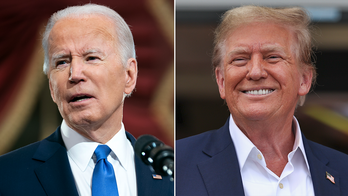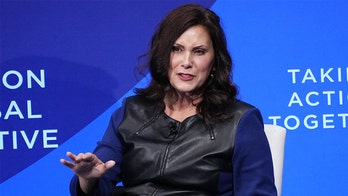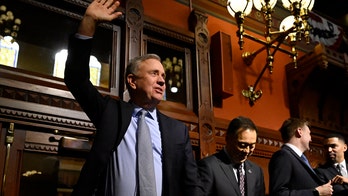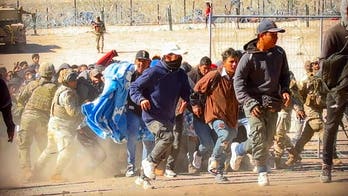Biden VP contenders Karen Bass and Susan Rice scramble to explain previous comments
Fox News contributor Rachel Campos- Duffy weighs in on how prior remarks by Karen Bass and Susan Rice will affect the Biden campaign.
With two weeks to go until the Democratic National Convention gets underway in Milwaukee the hype and speculation over whom former Vice President Joe Biden will name as his running mate is going into overdrive.
But don't expect the presumptive Democratic presidential nominee to name his running mate this week.
A source familiar with the process selecting a vice presidential nominee told Fox News on Monday that "an announcement isn't likely this week."
BIDEN VP PICK NOT LIKELY THIS WEEK: SOURCE
Last week Biden told reporters that he would choose his party's vice presidential nominee by "the first week in August."
That was in line with the former vice president's previous statements. Biden has said for a couple of months that his running mate announcement would come in early August. And in March, he vowed that he would name a woman as the party’s vice presidential nominee.
But the news that no announcement is likely in the next few days could intensify the behind-the-scenes jockeying among Democrats backing the roughly half dozen or so female candidates believed to be among the top contenders Biden’s seriously considering to serve with him on the party’s ticket. And it would provide time for more for opposition research to be dropped on some of the potential running mates.
As Biden narrows down his shortlist, the sharp elbows by Democrats supporting some of contenders occasionally spills out into public view. A veteran Democratic consultant who asked to remain anonymous to speak more freely called some of the barbs between the camps "disappointing and unfortunate."
But Mo Elleithee, the founding executive director of Georgetown University's Institute of Politics and Public Service and a Fox News contributor, dismissed the jockeying as "background noise."
"I don't think it’s going to have much impact," Elleithee said. "I don't think most people are going to pay attention until the actual nominee is unveiled."
As for an announcement coming closer to the convention, the former senior spokesman for Hillary Clinton's 2008 presidential campaign who later served as communications director for the Democratic National Committee emphasized that "getting it right is much more important than getting it out soon. So I don't think there's much downside to this. ... I don't think waiting an additional week makes much of a difference."
HERE'S WHO BIDEN MAY BE CONSIDERING AS HIS RUNNING MATE
Four years ago, Clinton didn't name Sen. Tim Kaine of Virginia and Donald Trump didn't announce then-Indiana Gov. Mike Pence as their running mates until just a couple of days before their party's conventions.
"Looking back at the past couple of decades of presidential politics, presidential nominees have typically announced their running mates much closer to the conventions," Elleithee added.
An exception was in 2012, when GOP nominee Mitt Romney named then-Rep. Paul Ryan of Wisconsin as his running mate roughly two weeks before the GOP convention.
But more time could lead to opposition research drops on some of the contenders. This past weekend, Rep. Karen Bass of California needed to respond to a recently emerged video that showed her praising the controversial Church of Scientology during a church opening in 2010. The organization has long been accused of acting like a cult.
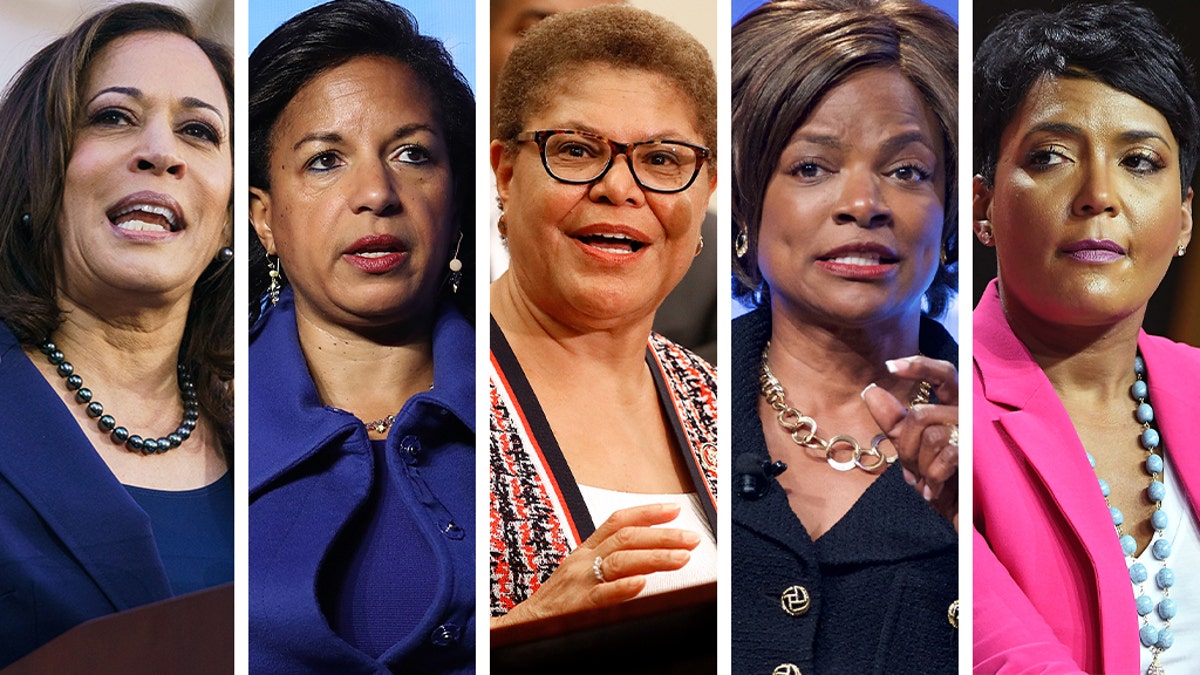
Biden's list of vice president contenders includes (from left) Sen. Kamala Harris, former National Security Adviser Susan Rice, Rep. Karen Bass, Rep. Val Demings, Mayor Keisha Lance Bottoms
In a statement, Bass emphasized that she "proudly" worships at a Baptist church and noted that since her 2010 comments, "published first-hand accounts in books, interviews and documentaries have exposed this group. Everyone is now aware of the allegations against Scientology."
TRUMP CALLS OUT NEW BILL GIVING DEMOCRATIC GOVERNOR MORE CONTROL OVER BATTLEGROUND STATE ELECTION
Colin Reed – a longtime GOP strategist and veteran of the 2012 Romney campaign who served as the executive director of the pro-Republican opposition research shop America Rising in the 2016 cycle – highlighted that "you want to send a message to those making the decision that life will be unpleasant or uncomfortable should they pick the running mate that you view was the most formidable."
"If you have the goods or if you have juicy opposition research on a candidate you don't want to face, there's a strategic advantage to getting that out in the waters ahead of time and let people know 'pick this person at your own peril,'" he explained. "If there are candidates that you do want to be named to the ticket because you think they'll be a political liability, you obviously withhold that information and hope and pray that they are the ones that are picked and then blast them out of the gates."
The naming and nomination of the running mate has long been one of the last remaining big earned media moments heading into the debates, and Reed stressed that "the opposition's job is to make sure it's not pleasant, to make sure there's a barrage of contrasts and negative information being put into the news cycle ahead of time."
But Elleithee countered that such attacks could backfire.
"I actually think it's healthy for the process to have some of this go on now. Seeing how some of the potential candidates deal with the incoming before they're selected is very illuminating," he argued.


